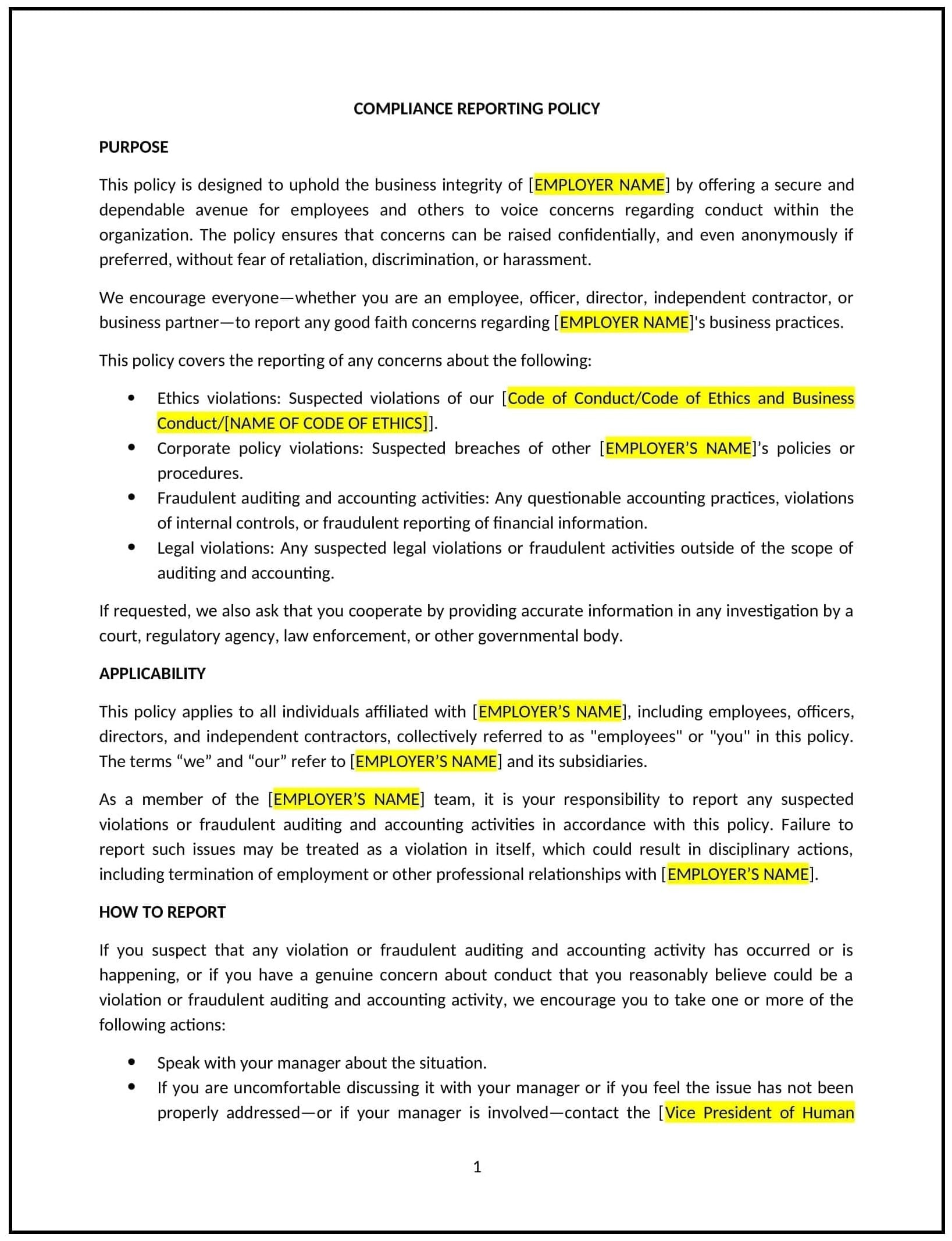Compliance reporting policy (South Carolina): Free template
Got contracts to review? While you're here for policies, let Cobrief make contract review effortless—start your free review now.

Customize this template for free
Compliance reporting policy (South Carolina)
This compliance reporting policy is designed to help South Carolina businesses establish clear procedures for employees to report potential compliance issues, such as unethical behavior, safety concerns, or regulatory violations. It outlines reporting channels, confidentiality protections, and steps for addressing reported issues.
By adopting this policy, businesses can foster a culture of transparency, address concerns proactively, and align with general best practices for ethical business operations.
How to use this compliance reporting policy (South Carolina)
- Define reporting scope: Clarify what types of issues employees can report, such as safety violations, fraud, or harassment.
- Establish reporting channels: Provide multiple ways for employees to report concerns, such as anonymous hotlines, email, or direct communication with supervisors.
- Ensure confidentiality: Protect the identity of employees who report issues to encourage open communication.
- Outline investigation procedures: Describe how reported issues will be investigated and resolved.
- Train managers: Educate supervisors on handling reports professionally and maintaining confidentiality.
- Review and update: Assess the policy annually to ensure it aligns with evolving business needs and regulatory expectations.
Benefits of using this compliance reporting policy (South Carolina)
This policy offers several advantages for South Carolina businesses:
- Promotes transparency: Encourages employees to report concerns without fear of retaliation.
- Mitigates risks: Helps businesses identify and address compliance issues before they escalate.
- Builds trust: Demonstrates a commitment to ethical practices and employee well-being.
- Supports accountability: Ensures reported issues are investigated and resolved promptly.
- Aligns with best practices: Provides a structured approach to managing compliance concerns.
Tips for using this compliance reporting policy (South Carolina)
- Communicate the policy: Share the policy with employees and include it in the employee handbook.
- Provide training: Educate managers on handling reports professionally and maintaining confidentiality.
- Monitor adherence: Regularly review reported issues to ensure they are addressed promptly and fairly.
- Address issues promptly: Take corrective action if reports are mishandled or ignored.
- Update regularly: Assess the policy annually to ensure it aligns with evolving business needs and regulatory expectations.